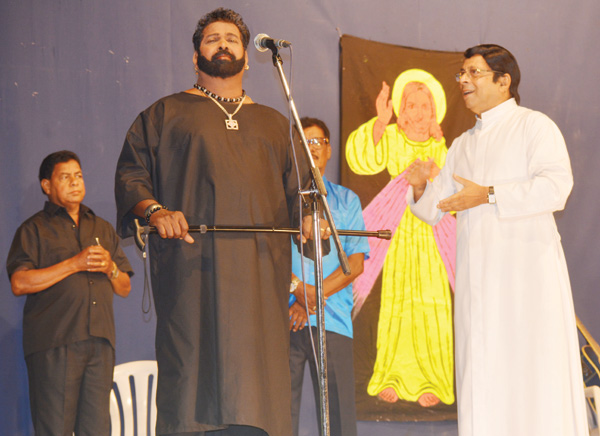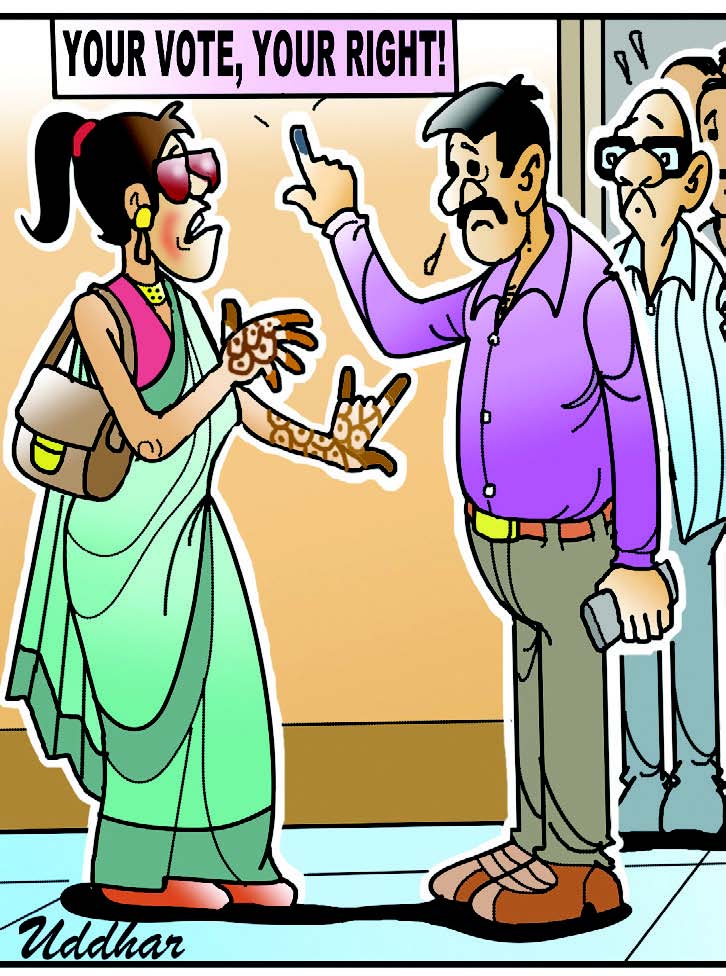21 Aug 2017 | 02:59am IST
Famous for his flourish on stage
During the period when women did not have the opportunity to showcase their theatrical skills and their stepping on stage was a taboo, Joao Fernandes quite literally stepped into their shoes and proved his calibre as a tiatrist
Pio Esteves
Born on March 27, 1948, Joao Santana Fernandes, popularly known as Johnny Boy in his village, Cuncolim, is the son of late Caetano Agostinho Fernandes, a mestri who played the saxophone and trumpet with ease and confidence.
“During the Portuguese era, when Carnival festivities were celebrated in a big way and were quite popular among the people in the villages of south Goa,my father would organise folk plays (zomnivhele khell) and concerts in neighbouring villages,” he informs. At the tender age of 9, Johnny’s father introduced him in ‘contra dans’, which was popular during the Carnival festival. He also participated in singing and acting events in his village.
Before Goa’s Liberation, Johnny completed his ‘primeiro gravo’ at the Portuguese school in his village, followed by primary education after Goa’s Liberation at Maria Bambina Convent School in Cuncolim. “Later, the parish priest opened the parochial school and all the students were shifted there,” he adds, also mentioning, “The concerts, cultural activities and dramas in school and the village helped to tap the hidden talent in me.”
In tiatrs staged in the villages, Johnny would get instant applause and appreciation from the audience when he decked up in women’s attire and played female roles. He had the opportunity of meeting veteran tiatrists like late F Micky, late B Salcete, late John Gomes (Kokoy), Eddie Mascarenhas, Jeppy de Dandora and Jocky de Veroda.
During the annual Carnival festival in Goa, Johnny would play female roles in traditional folk plays and was spotted singing duets with stage partner, late Pascoal Fernandes, also from Cuncolim. Simultaneously, he would also be crooning for the AVC Pops (Assolna Velim Cuncolim) along with late Carmo Rodrigues in 1970.
After completing his matriculation (Pune Board), Johnny moved to Mumbai, following job opportunities. He worked there for six months at various hotels. He then proceeded to the Gulf in search of better prospects, but berore that, he penned and directed three tiatrs, ‘Ostorechem Jivit’, ‘Bhav-bhoinnichem Dukh’ and ‘Dharunn Ostori’. While staging his tiatrs in his own village and neighbouring villages like Assolna, Dandora, Comba, Veroda, Bali and Canacona, he picked up all village artistes.
After moving to Saudi Arabia, he served in Aramco camp and while working there, he met noted tiatrist late Luciano Dias from Raia. The duo formed a dramatic troupe along with other Goans and Mangaloreans working in Saudi.
As the dramatic troupe grew strong, Johnny penned tiatr ‘Rekha, Reshma & Rita’, which was directed by Luciano Dias and staged in a cinema hall at the Aramco camp. After serving in Saudi Arabia for four years, Johnny returned to his roots and settled at his paternal residence in Colva, starting a bar and restaurant under the name ‘Johnny Cool’.
In 1984, his neighbour, Dioguinho da Costa, brother of noted tiatrist Josephine Dias, Joaquim da Costa and late Peter da Costa, introduced Johnny in his tiatr ‘Tarvotti’, wherein noted tiatrists M Boyer, Jacint Vaz, Felcy, Jr Rod, William de Curtorim were part of the troupe. Taking note of his talent in singing and acting, F Cardozo took him in his tiatrs ‘Arxeant Poi’, ‘Mother Tereza’ and ‘Fr Savio’.
After a gap of 20 years, when F Cardozo decided to stage his old production ‘Fr Savio’ during the Lent season, Johnny was again seen on stage, enacting the same role with ease and confidence. “It’s love for the Konkani language and theatre art that drives me to take up these opportunities,” he says.
Johnny is presently the lifetime member of the Konknni Non-Stop Tiatristanchi Sonvstha. He laments that due to his active involvement in his private business for the last 25 years, through which he earns a living, tiatr and talent have taken a backseat.
For the upcoming new talent on stage, Johnny has a word of encouragement and some advice. “Take Konkani to greater heights,” he humbly says, “and stay committed to stage work, honestly. Earlier, direction coming in from directors to their co-artistes was rare but today some of the directors are willing to guide the amateurs. Also, the various workshops conducted by various cultural organisations help to gain more knowledge and attain mastery over stage art. Take full advantage of this.”

